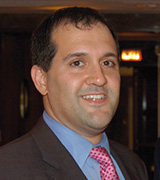- Leading HANAC: Stacy Bliagos on Community Service in New York
- The Hellenic Initiative Celebrates Record-Breaking Weekend in New York
- Building the Future: HANAC’s 53rd Anniversary Gala Honors Advocates for Affordable Housing and Community Care
- Leona Lewis: Las Vegas residency ‘A Starry Night’
- Emmanuel Velivasakis, Distinguished Engineer and Author, Presents His Book at the Hellenic Cultural Center
A Community Investment Strategy

Endy Zemenides
The 2014 fundraising efforts for all of our community’s institutions are in high gear. With the amount of dinner dances, church festivals, conferences – and with all the community leaders behind these respective events – it would seem to be absurd to argue that almost every one of our organizations faces a funding crisis. But yet they do. Ask any parish that has had its food festival rained out. Ask groups that depend on a few older wealthy donors that pass away without making provisions in their estate for continued support.
The Greek-American community faces a few major fundraising challenges, but chief among them is that we have not broadened our funding base adequately. This may be a function of the primary focus of fundraising efforts being events – events that carry high ticket prices and are thus inaccessible to many (if not most) in the community. The efforts put into selling out tables at an event are not equaled by efforts to get people to sign up for membership – which net more money for an organization.
We should not underestimate how many people want to support Hellenic causes – even at $10 or $25 at a time. HALC’s own experience shows that the key is finding the people who are interested and asking them in the right way. During the London Olympics, when stories were circulating about Greek athletes not having money to train, HALC’s network responded to a $10,000 matching challenge grant and sent nearly $30,000 to four Greek athletes – including the eventual flag bearer – enabling them to complete their Olympic training. This past December, 490 donors in the HALC network responded to a challenge grant from the Hellenic Initiative, and raised nearly $40,000 (unlocking another $150,000). The average donation was $80 – and people participated without an event, without an ad book, and during the holidays when their attention was elsewhere.
It is high time that the community prioritizes identifying and engaging this broader base. Here are three easy ways to do this:
(1). Effectively utilize the Greek-American press. The readership of NEO and other Greek-American publications obviously have more than a passing interest in issues of concern to the community. Yet due to their own economic constraints, a lot of their time (and space) is devoted to advertisements – most of which are private advertisements. In order to have exposure to this more highly motivated base, institutions should invest in better placed (full page) advertisements in these publications (and perhaps some extra coverage of the related causes). The community will not survive without methods of communication, and it is necessary to reshape and fully support our press organs in such a way that they are not only a source of information, but help form a critical network.
(2). Take advantage of online networks. The two HALC related fundraising efforts cited above were executed online. HALC initiatives to send over 20,000 letters to Congress directly from constituents took place entirely online. A petition drive on Hagia Sophia that secured over 26,000 signatures to UNESCO took place online. HALC has 35,000 Facebook followers, over 40,000 emails. This network clearly engages when it cares about something. Advertising to and engaging this network – and other similar networks – can open up an entirely new fundraising universe.
(3). Leadership should engage and challenge. Experienced political and non-profit fundraisers will tell you that challenge grants and matching grants are as effective as any other tool to raise money. It will be tough to ask organizations to make the large donations that they already work very hard to receive conditional. A Greek non-profit/civic “venture capitalist” fund of sorts could be formed, with the express purpose of providing matching funds to organizations that meet certain standards and that do a certain amount of crowd funding. This will have the effect of making every organization raise the bar internally, knowing that they will be compared to other organizations in detail. Furthermore, it will have the added benefit of forcing organizations to broaden the community’s funding base by searching for these crowd funding donations.
All these strategies can – and should – be implemented immediately. We are certainly not delivering enough aid to Greece. We are not making our presence felt enough in the American political system. Greek schools are closing, our parishes are becoming reliant on selling souvlakia and gyros one weekend a year, and our press is begging for support. If this is our strategy for how we leave a community to the next generation, we are either willfully blind or really don’t care about what comes next. We’ve all seen, however, that enough people do care, and if they are given an opportunity to invest, they will. Let’s give them that opportunity and a return on that investment.











0 comments